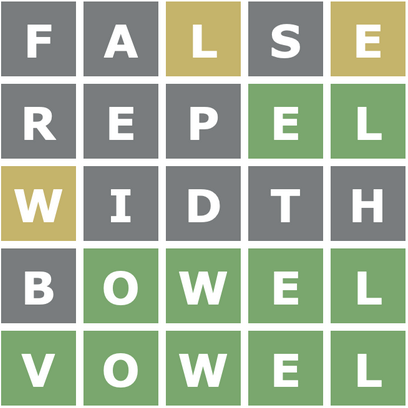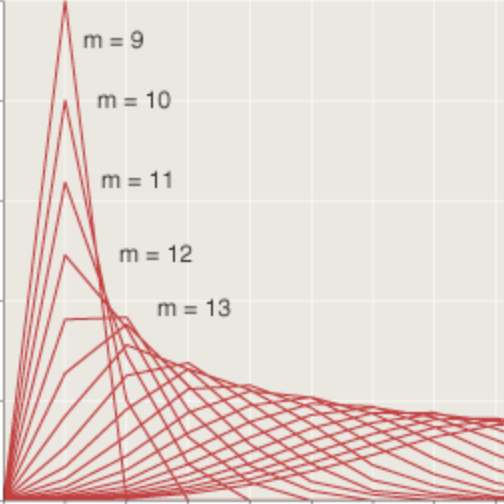Bertrand Russell, Donald Trump, and Archimedes
by Brian Hayes
Published 10 August 2016
A habit of finding pleasure in thought rather than in action is a safeguard against unwisdom and excessive love of power, a means of preserving serenity in misfortune and peace of mind among worries. A life confined to what is personal is likely, sooner or later, to become unbearably painful; it is only by windows into a larger and less fretful cosmos that the more tragic parts of life become endurable.
—Bertrand Russell, “Useless” Knowledge, 1935
For Russell, mathematics was one of those windows opening on a calmer universe. So it is for me too, and for many others. When you are absorbed in solving a problem, understanding a theorem, or writing a computer program, the world’s noisy bickering is magically muted. For a little while, at least, you can hold back life’s conflicts, heartaches, and disappointments.
But Russell was no self-absorbed savant, standing aloof from the issues of his time. On the contrary, he was deeply engaged in public discourse. During World War I he took a pacifist position (and went to prison for it), and he continued to speak his peace into the Vietnam era.
Bit-player.org is meant to be a little corner of Russell’s less fretful cosmos, both for me and, I hope, for my readers. In this space I would prefer to shut out the clamor of the hustings and the marketplace. And yet there comes a time to look up from bit-playing and listen to what’s going on outside the window.
A candidate for the U.S. presidency is goading his followers to murder his opponent. Here are his words (in the New York Times transcription):
Hillary wants to abolish—essentially abolish—the Second Amendment. By the way, and if she gets to pick—if she gets to pick her judges, nothing you can do folks. Although the Second Amendment people—maybe there is, I don’t know.
A day later, Donald Trump said he was merely suggesting that gun owners might be roused to come out and vote, not that they might assassinate a president. Yeah, sure. And when Henry II of England mused, “Who will rid me of this troublesome priest?” he was just asking an idle question. But soon enough Thomas Becket was hacked to death on the floor of Canterbury Cathedral.
This is not the first time Trump has strayed beyond tasteless buffoonery into reckless incitement. But this instance is so egregious I just cannot keep quiet. His words are vile and dangerous. I have to speak out against them. We face a threat to the survival of democracy and civil society.
Mathematics, after all, is one of those luxuries we can afford only so long as the thugs do not come crashing through the door. Another great mathematician offers a lesson here, in a tale told by Plutarch. During the sack of Syracuse, according to one version of the legend, Archimedes was puzzling out a mathemetical problem. He was staring at a diagram sketched in the sand when Roman soldiers came upon him. Deep in thought, he refused to turn away from his work until he had finished the proof of his theorem. One of the soldiers drew a sword and ran him through.
Death of Archimedes. Engraving after a painting by Gustave Courtois (1853-1923).
Responses from readers:
Please note: The bit-player website is no longer equipped to accept and publish comments from readers, but the author is still eager to hear from you. Send comments, criticism, compliments, or corrections to brian@bit-player.org.
Publication history
First publication: 10 August 2016
Converted to Eleventy framework: 22 April 2025




Two points. First, in the attempt to makes sense of the verbal hash of Trump’s aside, commentators seem to have read “Second Amendment” as a modifier of “people,” to wit, “people who believe in [or "support" or "cherish" or whatever] the Second Amendment.” I hear it differently (and I do mean “hear it,” as in listening to the clip, which is widely available). I hear an implied comma: “Although the Second Amendment, people, maybe there is.” That is, “people” plays the same role as “folks” in the previous sentence’s, “nothing you can do, folks.” It’s simply a reminder to the audience that he is addressing them. Hearing it this way makes for a much more natural flow of ideas: If Hillary gets to pick her judges, there’s nothing you can do — but given your right to own guns, maybe there is.
And this leads to my second point: I don’t think the dog whistle Trump is tootling here has anything to do with killing a president. Except for the most extreme among them, the rank and file of the right wing militant gun nuts don’t cotton much to assassination as a tactic in dealing with political opponents. What they do have a fondness for, however, is the quaint notion of armed resistance to an intrusive, tyrannical government. After all, the old NRA slogan reads “I’ll give you my gun when you pry it from my cold, dead hands,” not “If you come for my guns I’ll shoot your elected officials.” I think this is what Trump’s verbal hash was alluding to, and I suspect it’s the dog whistle his intended audience heard.
The god of war killed itself the moment the first atomic bomb was created and used.
The dreams of glorious conquest and world domination all died as well. The warriors of today, terrorists included, carry on as if their god, “war”, was still alive.
No good will ever again come from it.